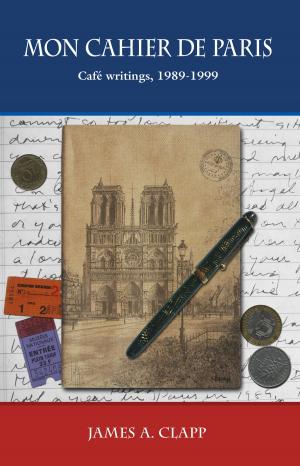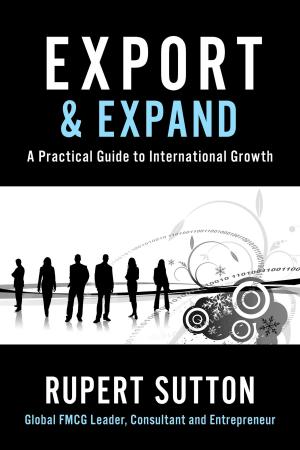| Author: | Mark Richard Beaulieu | ISBN: | 9781620954065 |
| Publisher: | BookBaby | Publication: | March 10, 2012 |
| Imprint: | Language: | English |
| Author: | Mark Richard Beaulieu |
| ISBN: | 9781620954065 |
| Publisher: | BookBaby |
| Publication: | March 10, 2012 |
| Imprint: | |
| Language: | English |
“Is that, a woman’s voice, I hear?” a trial bishop admonishes a high gallery in Chauvigny. The conscience of a father, the royal Duke of Aquitaine, assaulted by a world steeped in prejudice, violence, and religious hypocrisy, is moved by the stamina and heroism of one girl’s struggle for justice, honor, and love. Her words have just upset an important bishop. The Duke of Aquitaine has discovered the power of his daughter. Through the young eyes of Alienor and her friends, the book explores with rich humor and deep honesty the irrationality of adult medieval attitudes toward faith, knowing, gender, and love. Beginning with high-spirited mischief in the backroads and rivers of post-Roman Aquitaine France, these young explorers move beyond their adventures. With Alienor’s wealth and heart, they realize together they can change the world. And they do – but a medieval world tolerates only so much. The historical fiction ALIENOR opens with eight-year-old Amira spared from a fearful world that adults have created. When she finds a new friend in Spark, a fellow jokester and rockhound, they know they will be friends for life. Soon, Amira finds Spark is more than she presents herself to be. At a special abbey where men and women live in balance, girls and boys are taught alongside one another the medieval skills of invention, counting bells by the sun, poetic song, acrobatic dance, falconing, bird messaging, ‘dictonic’ speech, and thought. Encouraged to have curious minds, the youth become attracted to what authorities will oppose: Alienor’s pursuit of an unusual idea she calls love – not what one commonly understands as love – but hers. By perception and practice of it, she astounds convention. How she comes to terms with its many forces, becomes her code. This code leads her to become one of the most powerful and enigmatic women of the middle ages. On a larger stage, the outer world, drawn to her wealth, sees her lifestyle of fashion, beauty, art, and personal faith as alien and unholy. Alienor is a story of origins, of a woman who disparages privilege and brings her values into a brutal world. The origins of modern justice, governance, romance and ascent to power is told by young knights, troubadours, counselors, priests, slaves, and a girl named Alienor. Queen storywriters have rarely visited the life of Eleanor of Aquitaine. No writer has yet explored her formative years. None have shown what it takes in a young woman to have a Katharine Hepburn gumption to withstand a 3000 mile march in the nearly fatal Second Crusade. Many stories of this era are written as if every castle stone has been laid. The world of this novel accurately pictures a world under construction, giving the feel of a lively emerging civilization. Writers often define her character in singular ways. A recent novelist depicts her a character obsessed by mid-aged sexuality. Blogs are full of red ink at the shallow portrayal of a complex, powerful woman. Readers seeking a credible multifaceted woman will find her in this comprehensive story of an epic female living in a vibrant fascinating era. Her powers and love of life often express themselves in a valiant effort to make the world better than what it is. ALIENOR is a reconstructed history telling the first of six phases of her emerging view of the world. She is essential to understanding the shaping of the Western soul. In development for twelve years and using the latest scholarly research, this book significantly updates earlier stories about Eleanor of Aquitaine. It presents a human story. Characters come across many challenges that many young persons face, and resolve them in exciting, unusual and sometimes epic ways. This is a book with characters in motion. They draw you to Eleanor’s complex layers of life, with everything in flux. When you catch up with them and her unique journey, this novel leaves you feeling a slightly better person for having read it.
“Is that, a woman’s voice, I hear?” a trial bishop admonishes a high gallery in Chauvigny. The conscience of a father, the royal Duke of Aquitaine, assaulted by a world steeped in prejudice, violence, and religious hypocrisy, is moved by the stamina and heroism of one girl’s struggle for justice, honor, and love. Her words have just upset an important bishop. The Duke of Aquitaine has discovered the power of his daughter. Through the young eyes of Alienor and her friends, the book explores with rich humor and deep honesty the irrationality of adult medieval attitudes toward faith, knowing, gender, and love. Beginning with high-spirited mischief in the backroads and rivers of post-Roman Aquitaine France, these young explorers move beyond their adventures. With Alienor’s wealth and heart, they realize together they can change the world. And they do – but a medieval world tolerates only so much. The historical fiction ALIENOR opens with eight-year-old Amira spared from a fearful world that adults have created. When she finds a new friend in Spark, a fellow jokester and rockhound, they know they will be friends for life. Soon, Amira finds Spark is more than she presents herself to be. At a special abbey where men and women live in balance, girls and boys are taught alongside one another the medieval skills of invention, counting bells by the sun, poetic song, acrobatic dance, falconing, bird messaging, ‘dictonic’ speech, and thought. Encouraged to have curious minds, the youth become attracted to what authorities will oppose: Alienor’s pursuit of an unusual idea she calls love – not what one commonly understands as love – but hers. By perception and practice of it, she astounds convention. How she comes to terms with its many forces, becomes her code. This code leads her to become one of the most powerful and enigmatic women of the middle ages. On a larger stage, the outer world, drawn to her wealth, sees her lifestyle of fashion, beauty, art, and personal faith as alien and unholy. Alienor is a story of origins, of a woman who disparages privilege and brings her values into a brutal world. The origins of modern justice, governance, romance and ascent to power is told by young knights, troubadours, counselors, priests, slaves, and a girl named Alienor. Queen storywriters have rarely visited the life of Eleanor of Aquitaine. No writer has yet explored her formative years. None have shown what it takes in a young woman to have a Katharine Hepburn gumption to withstand a 3000 mile march in the nearly fatal Second Crusade. Many stories of this era are written as if every castle stone has been laid. The world of this novel accurately pictures a world under construction, giving the feel of a lively emerging civilization. Writers often define her character in singular ways. A recent novelist depicts her a character obsessed by mid-aged sexuality. Blogs are full of red ink at the shallow portrayal of a complex, powerful woman. Readers seeking a credible multifaceted woman will find her in this comprehensive story of an epic female living in a vibrant fascinating era. Her powers and love of life often express themselves in a valiant effort to make the world better than what it is. ALIENOR is a reconstructed history telling the first of six phases of her emerging view of the world. She is essential to understanding the shaping of the Western soul. In development for twelve years and using the latest scholarly research, this book significantly updates earlier stories about Eleanor of Aquitaine. It presents a human story. Characters come across many challenges that many young persons face, and resolve them in exciting, unusual and sometimes epic ways. This is a book with characters in motion. They draw you to Eleanor’s complex layers of life, with everything in flux. When you catch up with them and her unique journey, this novel leaves you feeling a slightly better person for having read it.















